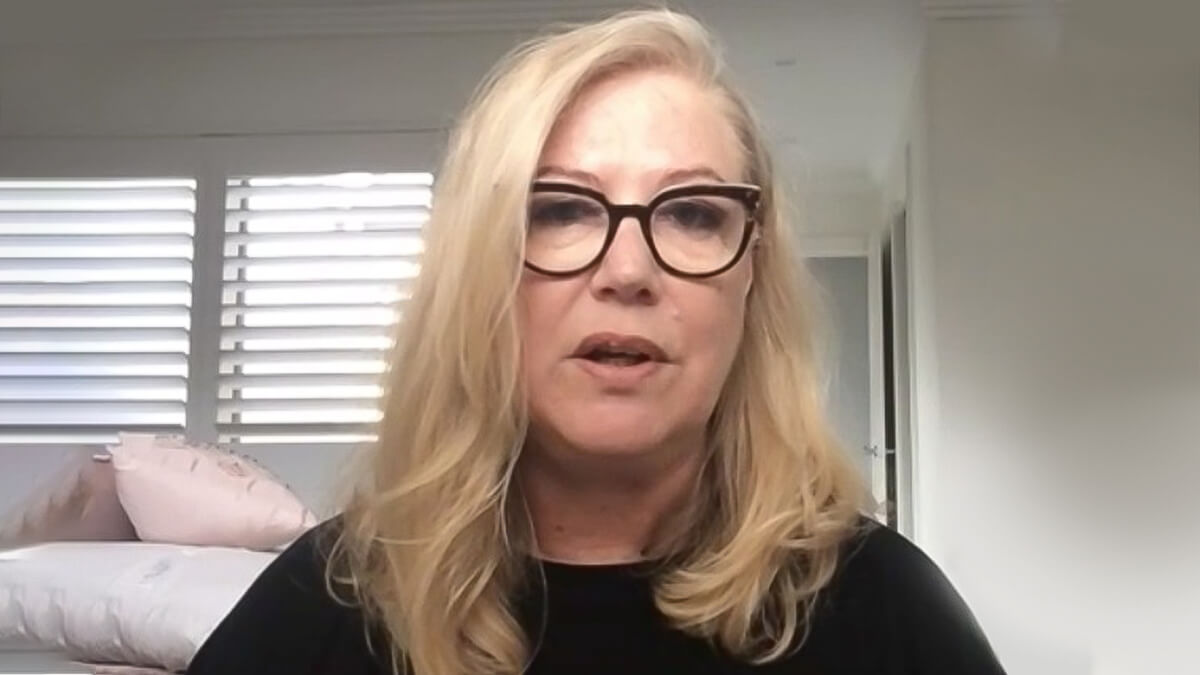Tracey Spicer talks to Deborah Kent from Integra Financial Services about the pros and cons of SMSFs, and how ethical investing is becoming more popular.
Transcript
Tracey Spicer
Hi, I’m Tracey Spicer. Today, we’re going to talk about so-called ethical funds and the benefits and drawbacks of having a self managed super fund. And to talk about this, we’re joined by the delightful and incredibly clever Deborah Kent from Integra Financial Services. Hi, Deborah.
Deborah Kent
Hi, Tracey. Thank you for having me today.
Tracey Spicer

Free eBook
SMSF investing essentials
Learn the essential facts about the SMSF investment rules, how to create an investment strategy (including templates) and how to give your strategy a healthcheck.
"*" indicates required fields
It’s my pleasure. Thanks for coming on to talk to me. I’ve always wondered about the benefits and disadvantages of self managed super funds. Where do you sit on this?
Deborah Kent
Look, I think self managed super funds are really good for the right people and unfortunately I think a lot of people that have them shouldn’t have them.
You really shouldn’t have a self managed super fund if you don’t have enough funds. I mean, theres a bit of a debate as to how much fund you should have. Is it $200,000? ASIC has mooted around half a million dollars should be around the sort of the range. And that’s because costs can blow out in these super funds.
There’s also a lot of responsibility in these funds. And just I guess a year or so ago, they were spruiked very highly by property spruikers to younger people or young families to go and buy an investment property or a residential investment property. And that is fraught with all sorts of dangers. And we’re now seeing a lot more regulation around them.
So ultimately, when you have a self managed super fund, you are responsible. So, yes, you can you can divest yourself of administration. You can divest yourself of the investment management. But at the end of the day, if anything goes wrong, the ATO will come after you.
If you have any breaches, you have to have the correct set up of the funds, whether you have a corporate trustee or you don’t. These are all things that you need to get advice on. And truly, if it’s not for you, you should not do it.
Now, what are the benefits of having a self managed super fund? The benefits are that it is very good for estate planning. So just for your listeners, superannuation sits outside of your will. So if you pass away, it doesn’t go through probate, it will go directly to who you nominate as your beneficiary. So in a self managed super fund, you can design that with your lawyer in such a way that it makes your estate planning much tighter.
Manage your SMSF smarter – for free

Access practical, independent guides and checklists to help you run your fund with confidence with a free SuperGuide account.
Find out moreSo people who have testamentary trusts, for instance, they may want to have a specialised binding death nomination, which you can do in a self managed super fund. So it’s very good for that.
Yes, you can have investment choice. You can choose term deposit shares, exchange traded funds. You can do a whole bunch of things. And yes, you can have property in it, but you need to be very, very careful about property.
The good thing for business owners, if you own a premises that you operate on, you can put it in your super fund. So it’s actually quite good for that purpose. But residential property, I have my doubts whether that is actually a very good investment for super, especially if you negatively gear it.
Tracey Spicer
Speaking of choice of investments, there’s been a lot of talk in the last 10 to 15 years about these so-called ethical funds. Are you seeing people investing differently because of the current economic conditions due to the pandemic?
Deborah Kent
Totally. I can tell you most of my clients, if I asked them the question, do you want some sort of ethical or responsible investment? I would say a few years ago, nobody ever said yes. Now they saying, yes, I would like to. And of course, we all would like to. We’ve seen a pandemic, we’ve seen climate change, we’ve seen the bushfires. It’s changed our view of the world.
But how do you get an ethical investment that’s ethical? That’s the real issue. You may look at an ethical investment, but underlying investments may not. They may have fossil fuels in there. They may have companies that are not socially responsible with, say, what we see around manufacturing. Are they using children overseas? These are the really hard things to dig into it, because sometimes when you look at an ethical investment, it appears difficult when you dig down underneath it’s not.
Super knowledge is a super power

"*" indicates required fields
So finding them is very, very hard. And that’s where you need to do some work on that and probably work with a professional that can, I guess, can help you understand. Super funds do have ethical options. They do. That doesn’t mean that the underlying investments are totally ethical. So it is very hard. But certainly super funds are looking at things like putting mandates on how much like having this super fund, which is ethical. They’re putting ethical overlays on things. You might hear your listeners may hear greenwashing.
That is a fund that will tell you they’re ethical and they’re not. So it even goes down to this one super fund that won’t invest, and I know you’ll like this Tracey, that won’t invest in companies that don’t have females on their boards.
So there’s all different categories of how ethical investments work. Some of the biggest super funds in this country are the biggest holders of fossil fuels. More and more, I think there’s a bit of an uprising from members, saying we want these options, but we want them to be truly sustainable.
You need to remember sustainable and ethical costs more and sometimes your returns are not as good as going into something else that obviously might not be as ethical. It comes down to your preferences at the end of the day.
Tracey Spicer
So seek expert advice and do your research. Are you seeing a lot of people within your business, withdrawing their superannuation early as part of these $10,000 tranches?
Deborah Kent
Personally, I haven’t. I’ve only had one client, and I think that’s the benefit of sometimes getting advice before you do it. And because I tend to work in the retirees, the pre-retirees and the wealth accumulators, I haven’t. But I do know of a lot. I do know of some friends who have children that have had to do it.
Manage your SMSF smarter – for free

Access practical, independent guides and checklists to help you run your fund with confidence with a free SuperGuide account.
Find out moreIt’s an interesting debate because there’s a lot of scare tactics out there around. Oh if you draw out your $10,000 to help you through the pandemic, you are going to lose hundreds of thousands in the future. Yes, that can happen. But if you take the view that you are borrowing this from your super fund and you are going to put it back, then you can catch up.
There are ways of catching up. As you know, I’m on social media a lot and I see a lot of stuff out there trying to scare people about their $10,000. There are people out there struggling. The entertainment industry stopped overnight.
I’ve got a daughter-in-law that’s in entertainment – no income. And she doesn’t know when it’s going to come back. Now, she wasn’t qualified for JobKeeper or JobSeeker or any of those things. So the ten thousand dollars, if somebody like her or other people need to draw it out, there’s a reason the government’s done it. So I think people should be guilty. But you will find that percentage of people that will do the wrong thing with it. They will go and gamble it or drink it. And that’s very sad. But that’s just a fact of life. You know, it’s going to happen. But I haven’t seen a lot.
But certainly I have I do know a lot of people that have had to draw on their super to get through this pandemic, which is a black swan event, one in one hundred years. We’ve never seen it. One of those unfortunate things that it’s very sad that people have to draw on this super. But there are ways of putting it back. So you need to think about how you can put it back.
Tracey Spicer
Speaking of subjects that are open to debate, I’m reminded of the planned increase to compulsory super. The government’s been commenting on that this week. Should it go ahead or not?
Deborah Kent
Well, that’s an interesting debate again, Tracy, if you talked to business owners, they’ll say that this is a new caost that they really can’t afford at the moment. Given the pandemic and COVID, there’s a lot of people that are struggling with obviously that just even trying to make a profit. There are people that are not in their offices paying rent. It’s a difficult time.
I think overall, I think the superannuation should go up. Should it be done now? I’m not so sure. From an employer point of view, it’s a difficult argument. Then you look at wages are not growing at the moment. So is this another way of getting some money back to the employee? But is that money? Are they spending it?
It’s going into super funds. So then you really want the superannuation funds to invest into projects and a number of other initiatives so that we help increase the economic situation that Australia is in at the moment by giving a wage rise. I mean, obviously, that’s different to super that hopefully we see people spend that money to increase our economy. It’s a really hard debate.
I think it’s going to be an interesting space to see where the government sits on it because it is legislated. It is supposed to go up by July 2021 to 10% and then through to 2025 to 12%. I think overall it’s a really good thing to do to put more money into super so people don’t have to rely on the pension when they retire.
But I’d also like to say, and I’m going to throw this in, I’d also like to see the government improve the contributions that people can do and give them incentives to do so, especially the older group. We’re capped at $25,000 we can put into super. I think there are other things the government should look at to encourage us as individuals to also save for our own retirement. But I think it’s going to be a very interesting debate to watch as to whether the government actually lets it go through given the pandemic and where we’re at at the moment.
Tracey Spicer
Deborah, thanks so much for your salient advice and for your time today.
Supercharge your SMSF

"*" indicates required fields
Deborah Kent
Thanks very much, Tracey. Thank you.

Leave a Reply
You must be logged in to post a comment.